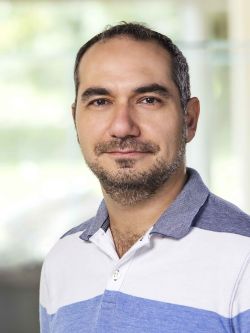Event Date/Time
Location
room 222
Series/Event Type
Understanding the physical processes modulating the transport of heat and passive scalars over very rough urban surfaces is essential for designing more sustainable cities and for parameterizing urban physics in coarser Earth systems models. At the building-to-neighborhood scales, open questions persist concerning the similarity between scalar and momentum transport and the role of dispersive fluxes. These micro-dynamics then influence the neighborhood-to-city scales macro-dynamics, including the relation between the momentum and scalar roughness lengths and the secondary thermal circulations that develop when the scalar actively generates buoyancy forces. In this talk, we present results based primarily on large-eddy simulations that (i) indicate a continuous dependence of scalar exchange, but not momentum exchange, on the Reynolds number even at very high Re, (ii) chart new theoretical pathways to link the momentum and scalar roughness lengths based on surface renewal theory, and (iii) propose a dimensional analysis framework to predict the transition of city-scale secondary flows from thermal circulation bubbles to advection-dominated plumes.
Speaker Bio
